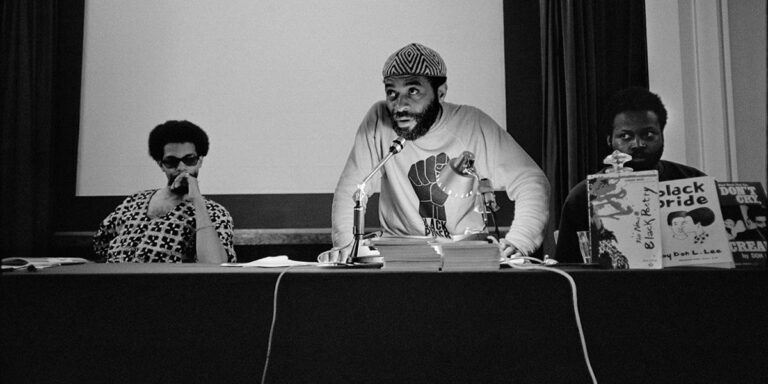
"In its 29th year of programming, the Chicago International Film Festival's Black Perspectives category continues to showcase and uplift stories across the diaspora, adding to the archives evidence that Black folk are far from monolithic. Now, more than ever, taking the time to experience stories outside our own will help preserve our ability to be compassionate neighbors. With 10 feature films and a shorts program included in CIFF's 61st lineup, Black Perspectives,"
"An archival snippet of activist and organizer Rosie Douglas telling us to "learn [your] history" sets the tone for the story that "True North" seeks to describe. The black-and-white documentary by director Michèle Stephenson weaves together soundbites, interviews, and a wealth of historical documentation to recount key events and figures of the Civil Rights Era in Canada, and, more specifically, Montreal."
"Stephenson strings together a narrative that was once stuck out of sight, a persistent yet unsurprising struggle of the Black experience and Black history. Similar to the foundation of the United States, a majority of the Black population in Canada is due to the transatlantic slave trade and immigration. Anchored in one of the more angsty (and, therefore, inactive) age groups, Stephenson narrows in on college students at Sir George University who are standing up for equal classroom treatment and academic opportunity."
Chicago International Film Festival's Black Perspectives presents ten feature films and a shorts program that showcase diverse stories from across the Black diaspora, emphasizing that Black communities are not monolithic. Michèle Stephenson's black-and-white documentary True North uses archival audio, scanned photos, interviews, and historical documents to trace Civil Rights–era events and figures in Canada, especially Montreal. The film foregrounds Black-Canadian experiences and exposes how institutions build and perpetuate anti-Blackness. Stephenson focuses on college students at Sir George University fighting for equal classroom treatment, depicting occupations, escalating one-sided violence, and the persistence of struggle within historical contexts.
Read at Roger Ebert
Unable to calculate read time
Collection
[
|
...
]